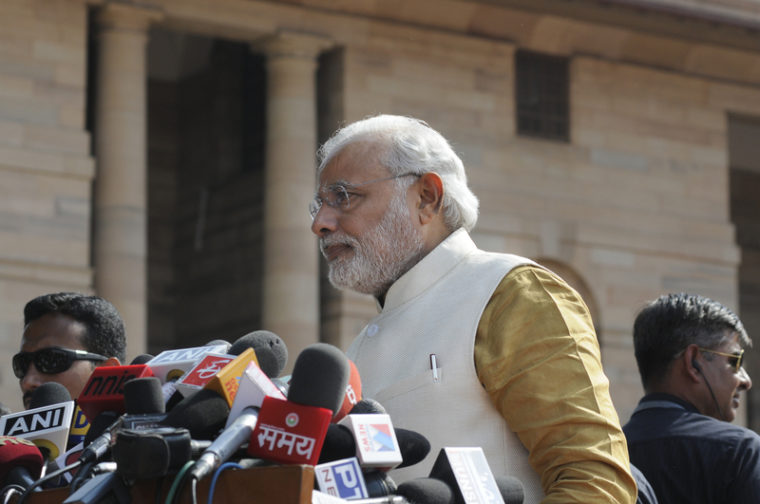
Joe Biden’s bold run to be a two-term President faces many hurdles but some key American policies could benefit from Indian Prime Minister Narendra Modi’s current presidency of the G-20 and leadership of the Global South.
Biden’s success in winning the November 2024 elections will depend chiefly on domestic issues like inflation, energy and food prices, his multibillion-dollar push for green energy investments, and efforts to avoid economic slowdown in an election year.
A central challenge stems from Biden’s core commitment cited by National Security Advisor Jake Sullivan in major policy remarks on April 27. “Today I’d like to zoom out to our broader international economic policy, particularly as it relates to President Biden’s core commitment—indeed, to his daily direction to us—to more deeply integrate domestic policy and foreign policy.”
This emphasis on integration to use foreign policy to reinforce domestic policy and vice versa is a key Biden response to the economic risks buffeting America’s middle class. They are exacerbated by Russia’s invasion of Ukraine and rising tensions between Washington and Beijing over Taiwan, high technology and numerous areas of international policy.
Importantly, that integration can get a boost from the 10 developing countries in G-20, which also comprises the 9 richest countries plus the European Union. Together, G-20 members account for 75% of global trade, 85% of global GDP and 60% of global population.
Among them, Modi is a catch because many leading analysts are saying his economic and industrial policies could soon turn India into a global powerhouse and growth leader for decades.
Modi is influential as a Global South leader because he has the ear of almost all developing countries despite the increasingly vigorous attempts of China’s Xi Jinping to turn them away from the US, towards an alternative global order fashioned by the Chinese Communist Party.
Biden, Putin and Xi are likely to attend the Modi-led G-20 Summit in Delhi in September because all three are courting developing country leaders and none will want to disappoint them. It would be a great opportunity to start a diplomatic process for de-escalation in Ukraine if Biden and Modi work together to shape a consensus declaration.
Such an initiative would put them a step ahead of Xi who has already taken the lead in peace-making following his March state visit to Putin in Moscow and April phone talk with Zelensky. He has also named a special envoy to Kyiv and Western capitals to keep up the momentum. Peace is very remote at this time but a consensus G-20 call for de-escalation could pave the way for Xi to use his influence over Putin for peace at an appropriate stage.
A successful de-escalation initiative at G-20 would also boost Biden’s chances of winning re-election especially if his opponent is Donald Trump, who is the least trusted American leader in most developing countries.
On the other hand, any sign of Xi’s success in advancing peace in Ukraine will be a blow to Biden, so close to elections crucial for American democracy and democratic freedoms everywhere.
Biden could profit from Modi’s vigorous efforts to build the G-20 Summit into a wider canvas that gives an effective voice to the Global South at the world’s top table. Bringing the Global South’s pressing needs permanently to this table is vital for the new international consensus Biden wants to build to head off alternatives driven by Xi and Putin.
Biden is rightly apprehensive of the deepening fissures in the rules and values-based international order America forged after the Second World War to promote democratic freedoms and human rights.
Sullivan noted: “So this moment demands that we forge a new consensus. That’s why the United States, under President Biden, is pursuing a modern industrial and innovation strategy —both at home and with partners around the world.”
In effect, to pursue this new strategy vital for the US, Biden needs developing country partners because his rich Western allies no longer have enough diplomatic clout in a world thoroughly disrupted by a warring Russia and aggressive China.
Modi was the first to boldly warn Russia’s Vladimir Putin in a one-on-one meeting in Samarkand, Uzbekistan in September 2022. “I know that today’s era is not the era for war,” he admonished.
“We’ve spoken to you many times on the phone before on this, that democracy, diplomacy and dialogue — these things help the world,” he insisted at risk of offending the Russian strongman who is a longtime friend of India. Biden would probably have used a similar turn of phrase.
Modi’s words were based on India’s ancient ethos expressed in his G-20 vision of “One Earth, One Family, One Future”. This vision also challenges Xi who is championing “a shared future for mankind” under Beijing’s tutelage.
Photo 41107049 © Arindam Banerjee | Dreamstime.com
















